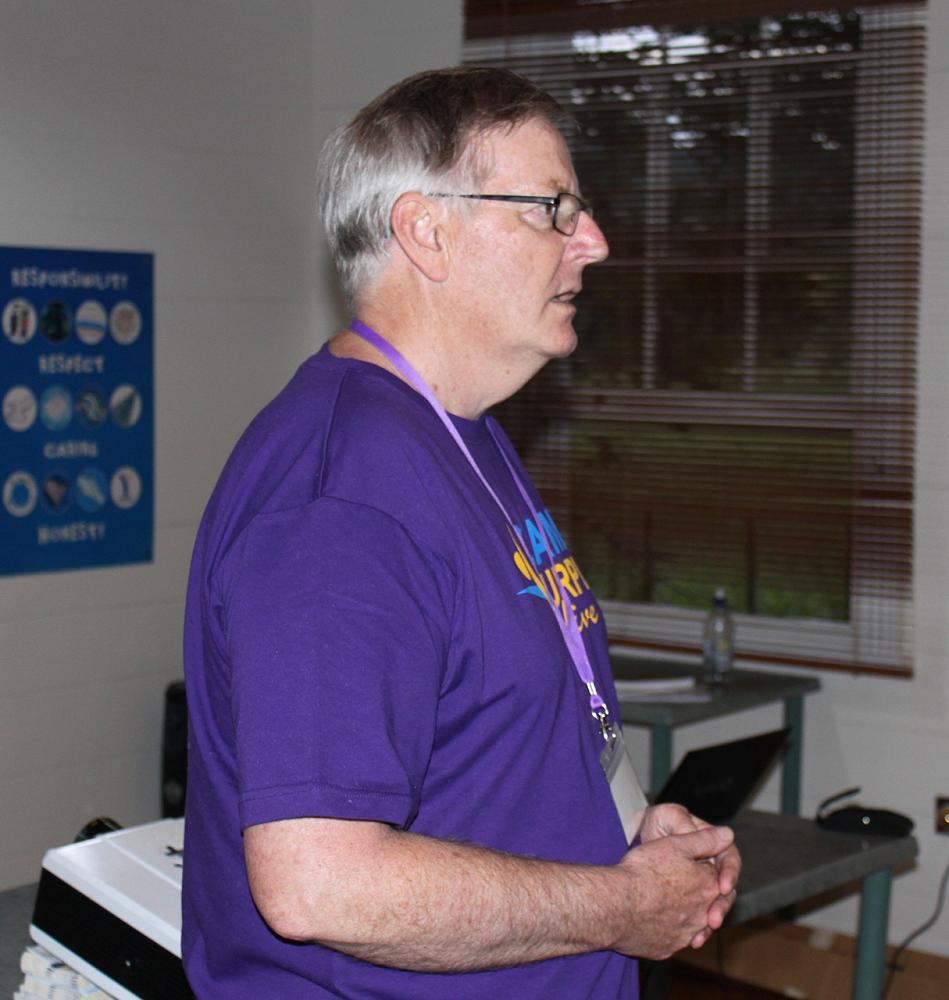
FREEMASONS AND CHARITY Support for Camp Purple
Benevolence and helping those in need is a cornerstone in Freemasonry and every member is encouraged to become involved in charitable activities.
While the origins of Freemasonry are lost in the mists of time the Craft, as we know it today, originated with the medieval stonemasons who moved around the countryside applying their skills to the great cathedrals and castles of the Middle Ages. Living in an age of illiteracy these stonemasons had to have other means of proving their competency when seeking work in new towns. Thus, a system tests evolved whereby the achieved level of skills could be demonstrated by the knowledge of secrets known only to those who had reached that level of competence. Training for, and testing of these skills took place in Lodges attached to the building sites.
With the advent of canals in England, which allowed the easy transport of other building materials, such as bricks and timber, the need for trained stonemasons diminished but their Lodges survived in the form of a new and speculative Freemasonry with a broader membership, whereby the trade secrets evolved into a form of morality plays which continue to be performed today.
Freemasonry, as we know it now, traces its history back to 1717 when the Grand Lodge of England was formed by men who had a background rooted in education and with a commitment to the well-being of their fellow man. Today Freemasonry pursues those same ideals, as we consider the fabric of modern society is woven from those principles.
Freemasonry came to New Zealand with the early settlers, with the first Lodge being formed in 1842. This and subsequent Lodges were of English, Scottish and Irish Constitutions but, with the formation of the Grand Lodge of New Zealand in 1890, most transferred their affiliation to the new regime. Today, of the original Lodges, only the English Constitution ones survive in any strength.
Individual Lodges operate autonomously, provided that they abide by the Book of Constitution and respect the offices of the Leaders. At the head of the organisation is the Grand Master, supported by three Divisional Grand Masters, each of whom have a number of District Grand Masters, all supported by a team of Grand Lodge Officers who have various ceremonial roles, all elected for a three-year term. Within individual Lodges there is a progressive “ladder” comprising various positions leading up to the Master of the Lodge. All typically serve a one-year term in each step of the ladder.
The ceremonial aspects of the Lodge reflect the medieval structure with ceremonies which provide the progression of membership from Entered Apprentice, through Fellowcraft to Master Mason. These ceremonies teach the history and principles of Freemasonry. In addition to the ceremonies meetings, usually held monthly, also comprise education and social evenings, the latter often including partners. While Freemasonry is principally a male fraternity there are a limited number of equivalent female and mixed lodges.
Benevolence and helping those in need is a cornerstone in Freemasonry and every member is encouraged to become involved in charitable activities. It is the major motivation for many to join the organisation. The Freemasons Charity, which had its origins in the late 19th Century, has, through the generosity of its members, built up a fund exceeding $30 million. The investment returns enable it to disburse funds in several ways. These principally cover Relief of Need, Matching Grants on Lodge projects, Medical Research and Scholarships. Unlike many other charities The Freemasons Charity does not solicit funds from the public. Hence, it is not well known outside its own members and those who benefit from its philanthropy
The Relief of Need grants are available on a fast track basis to the public at large, usually in the form of grocery or petrol vouchers. In the last year these have amounted to $75,000.
Matching Grants for Lodges on funds raised for a project in support of its community, are usually on a 1:1 basis, but can be greater if several Lodges are participating in the project. In the last year these have amounted to over $300,000.
The Freemasons University Scholarship programme, the largest privately funded such scheme in the country, has supported in excess of 1000 1,100 scholars over 40 years, with grants of up to $10,000 and is based upon recognising scholastic achievement as well as rewarding the recipients for their involvement in their local communities.
The Charity, through fellowships, is a major supporter of medical research in several fields, including Paediatrics, Ageing and Brain Research. A typical example is the internationally recognised work on brain research at Auckland University by Sir Richard Faull.
In addition to its own funds The Freemasons Charity administers several related Trusts, which have often come into being through bequests. For example, the Lawson-Smith Education Trust provides for four scholarships each year for Veterinary students at Massey University.
New Zealand’s Charitable Masonic Elder Care Trusts look after many hundreds of our elderly citizens, most of whom have no masonic connection, in 33 Masonic Villages, with nearly 1,200 villas, units and care beds within existing facilities.
Over the past three years individual Lodges and The Freemasons Charity have generously supported Camp Purple and will no doubt continue to do so.
For further information go to the Freemasons New Zealand web site www.freemasonsnz.org
There is basic information about Freemasonry in New Zealand and how to become a member on the Home Page.
